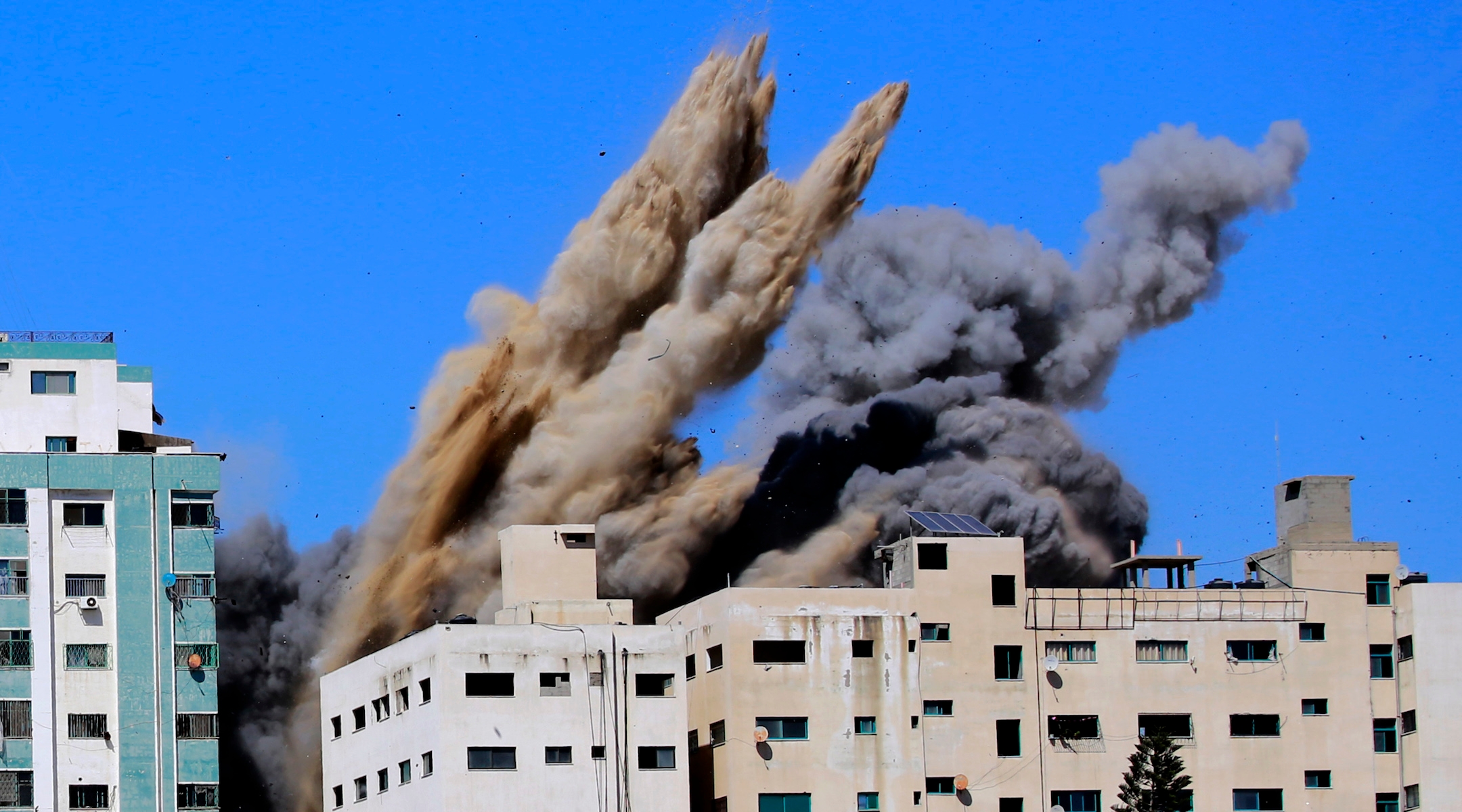Top AP brass attend reopening of Gaza bureau that was in building bombed by Israel
The presence of AP’s two top officials at the dedication of the new office signaled the importance the agency attached to reopening the bureau

Smoke rises from the Al-Jalaa tower in Gaza City, which housed apartments and several media outlets, including The Associated Press and Al Jazeera, after an Israeli airstrike, May 15, 2021. (Atia Mohammed/Flash90)
(JTA) — Top executives from the Associated Press launched the news agency’s new office in the Gaza Strip more than a year after Israel gave AP staff an hour’s notice to leave before bombing the building it said also housed a Hamas intelligence unit.
The importance the agency attached to reopening the bureau was signaled by the presence of Daisy Veerasingham, the AP president, and executive editor Julie Pace at the dedication of the new office on Tuesday. Israel is already under intense scrutiny of how it handles the international media following the shooting death in May of a popular Palestinian American journalist.
“AP’s resilient Gaza team has never wavered, even in the moments our bureau collapsed and in the weeks that followed,” Veerasingham said in a release. “The Associated Press has operated in Gaza for more than half a century and remains committed to telling the story of Gaza and its people.”
The reopening comes after multiple news outlets, including the Associated Press, published analyses blaming Israeli troops for the death of Al Jazeera journalist Shireen Abu Akleh, who was shot while covering an Israeli raid in Jenin. The State Department on Monday said Israeli troops were the likely shooters, but also said the killing was unintentional.
Last year during the Israel-Gaza conflict, Israel bombed a 12-story building in Gaza City known as a center for journalists covering the region, including some working for the AP and Al Jazeera. IDF officials warned journalists to leave the building an hour before the attack.
Israeli officials said that Hamas was operating out of the tower. In its latest release, the AP said Israel never provided evidence of Hamas’ presence in the building.
This article originally appeared on JTA.org.
A message from our CEO & publisher Rachel Fishman Feddersen
I hope you appreciated this article. Before you go, I’d like to ask you to please support the Forward’s award-winning, nonprofit journalism during this critical time.
We’ve set a goal to raise $260,000 by December 31. That’s an ambitious goal, but one that will give us the resources we need to invest in the high quality news, opinion, analysis and cultural coverage that isn’t available anywhere else.
If you feel inspired to make an impact, now is the time to give something back. Join us as a member at your most generous level.
— Rachel Fishman Feddersen, Publisher and CEO